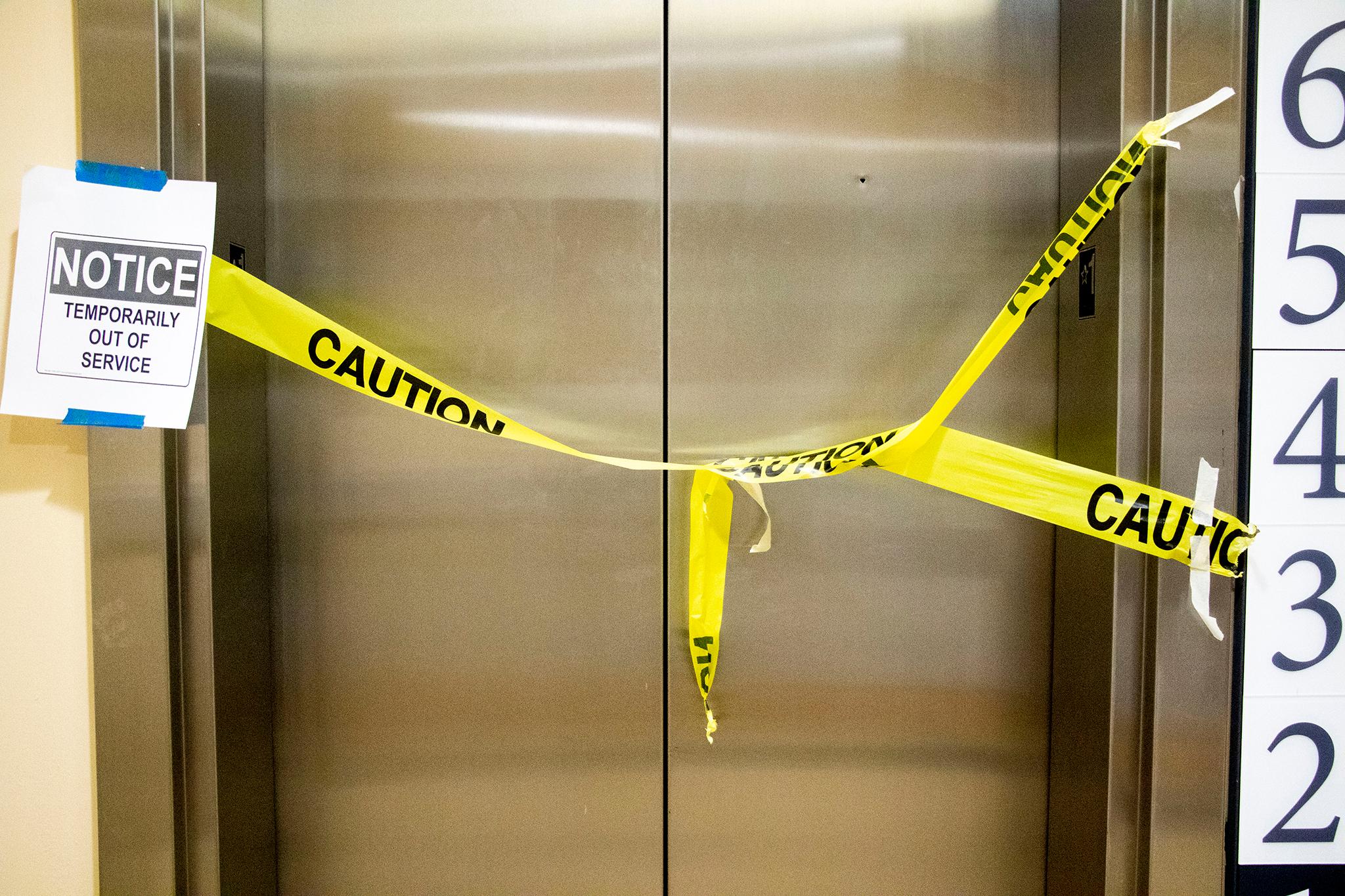There are roughly 7,000 elevators in Denver and every day the city's fire department responds to an average of eight people who end up stuck inside them. So it's no wonder why fire officials want Denver to adopt rules requiring elevator companies to respond to calls for assistance within an hour.
Denver Fire Department spokesperson Greg Pixley said there's no established code for response times and called the idea reasonable. The rule would make elevator companies either send a technician or contact the first-responders within one hour, mirroring a requirement for building owners to respond within 45 minutes of a firefighter's call.
"The changes are for the safety of the citizens," Pixley said.
The elevator emergency rule is part of broader construction and fire code changes presented and unanimously approved Tuesday by a Denver City Council committee. The proposal now heads to the full City Council for a vote.
Some elevator companies oppose the proposal. They called the rule unnecessary, claiming it would cause confusion about emergency response, have little effect on an elevator mechanic's arrival time, and in some cases would not be feasible to meet.
Brien Montera, branch manager at Thyssenkrupp Elevator Denver Downtown, was one of three people who spoke in opposition. He worried customers might get the idea that their technicians are emergency responders, which they're not. Though he opposed the rule, Montera said people trapped in elevators is a perennial problem.
"Elevator entrapment for us, from an elevator technician standpoint, is actually the number one priority," Montera said. "It's the biggest emergency for us ... that will always be the case."
Division Chief of Fire Prevention Manny Almaguer said during Tuesday's meeting the department averages eight entrapments a day, which requires nine firefighters to respond.
Pixley said firefighters have a lot of familiarity with elevators, but some situations demand elevator companies send their staff because they are experts who know more than anyone else about how the elevators function, Pixley said, and help address emergency situations more quickly.
Improving response time can also help avoid damage to the elevator. When responding to elevator calls involving people getting trapped, Pixley said their goal is to get people out as quickly as possible and limit property damage.
"We can get into anything," Pixley said. "A safe might give us a run for our money, but we would be able to eventually get into it. But in a situation like this, why would we put unnecessary damage if we can get an expert within an hour?"
During Tuesday's meeting, Councilman Chris Hinds, who uses a wheelchair, said having properly maintained elevators should be a priority as the city continues to densify. He's gotten messages from residents in several buildings about elevator issues, including from his own apartment complex.
"Eight rescues a day from our fire department is too much," Hinds said.
Councilwoman Candi CdeBaca said on Thursday she's heard about general elevator issues since she was campaigning for her seat. She's especially concerned with elevators in senior housing complexes that rely on them. She called the code proposals "a no-brainer."`
Pixley said the code updates won't affect the fire department's response time. The department tries to respond to all emergencies within 4 minutes or less across the city.













